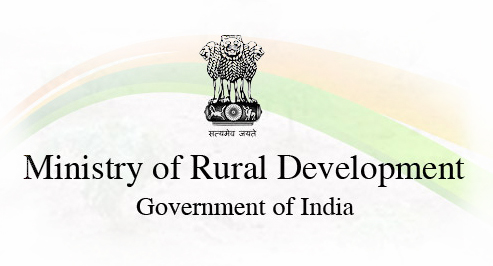Regional Workshop Highlights SHG-Led Women’s Action on Health & Nutrition
Smt. Smriti Sharan acknowledged the tireless efforts of State Rural Livelihood Missions (SRLMs) and community cadres in spearheading grassroots health efforts.

- Country:
- India
The Deendayal Antyodaya Yojana – National Rural Livelihoods Mission (DAY-NRLM), under the Ministry of Rural Development (MoRD), Government of India, in partnership with the Jharkhand State Livelihood Promotion Society (JSLPS), organized a two-day Regional Workshop on “Sangathan, Swasthya, Samriddhi: Women Collectives’ Action on Food, Nutrition, Health & WASH (FNHW)” in Ranchi, Jharkhand, from 22nd to 23rd July 2025. The workshop served as a collaborative platform to showcase Self-Help Group (SHG)-led health initiatives, promote cross-learning among states, and strengthen partnerships with government departments and development agencies.
The workshop highlighted the growing momentum of community-led health, nutrition, and sanitation initiatives, particularly by women’s groups, and emphasized the importance of integrating health and livelihoods in addressing multidimensional poverty at the grassroots level.
Grassroots Engagement: A Field Visit Anchored in Community Action
The first day featured an extensive field immersion visit, where delegates observed SHG-led FNHW interventions. These included:
-
Community-level planning and peer learning models
-
Participatory monitoring and data sharing mechanisms
-
Interactions with federation leaders, community cadres, block officials, and frontline health workers
The field exposure offered real-time insights into how SHG federations are shaping the public health narrative at the village level, serving as catalysts in improving food security, access to health services, and sanitation.
Inaugural Session: Leadership Perspectives on Health and Empowerment
On the second day, the workshop formally commenced with an inaugural session graced by:
-
Smt. Dipika Pandey Singh, Hon’ble Minister of Rural Development, Jharkhand
-
Shri N.N. Sinha, Former Secretary, MoRD
-
Smt. Smriti Sharan, Joint Secretary, MoRD
-
Dr. Monika, Deputy Secretary, MoRD
-
Shri K. Srinivasan, Secretary, RDD, Jharkhand
-
Shri Ananya Mittal, CEO, Jharkhand SRLM
-
Smt. Harshika Singh, CEO, Madhya Pradesh SRLM
In her keynote remarks, Smt. Dipika Pandey Singh emphasized that health is foundational to household resilience. She urged policymakers and programme implementers to focus not only on physical health but also on mental wellness, which often remains unaddressed in rural outreach models.
Shri N.N. Sinha urged increased investment in preventive health, stating that SHGs are pivotal agents of behavioral transformation. He stressed that public health outcomes and productivity are closely linked, and SHGs should be central to this change.
Smt. Smriti Sharan acknowledged the tireless efforts of State Rural Livelihood Missions (SRLMs) and community cadres in spearheading grassroots health efforts. She also called for immersion sites and model blocks that can serve as learning hubs for other states.
Strategic Interventions and Toolkit Launch
Shri Ananya Mittal, CEO of Jharkhand SRLM, outlined the state’s integrated strategy that connects health initiatives with livelihood development, demonstrating a multidimensional approach to tackle poverty. He stressed the importance of inter-sectoral convergence, involving departments like Health, Panchayati Raj, and Women & Child Development.
A key highlight of the day was the launch of the “Health and Poshan Toolkit”, developed by the Madhya Pradesh SRLM. The toolkit offers a structured model for SHGs to conduct awareness, service linkage, and behavior change communication activities focused on maternal health, nutrition, water and sanitation.
State and Sectoral Collaborations
Senior officials and FNHW in-charges from 14 States/UTs—including Jharkhand, Uttar Pradesh, Bihar, Chhattisgarh, Madhya Pradesh, Punjab, Rajasthan, Uttarakhand, Gujarat, Haryana, Himachal Pradesh, Maharashtra, Jammu & Kashmir, and Ladakh—attended the workshop.
Two thematic panel discussions explored:
-
SHGs as agents of women’s empowerment and public health mobilization
-
Cross-sectoral coordination and the challenges in real-time monitoring, training, and human resources
Officials from the Departments of Women & Child Development and Panchayati Raj, Jharkhand, shared successful models of community sensitization and emphasized SHG engagement in ICDS services and village health planning.
Stories of Change: Voices from the Field
Community Resource Persons (CRPs) shared compelling testimonies of how FNHW initiatives had transformed their personal and collective journeys. They narrated their progress from trainees to community leaders, often leading health campaigns, coordinating ANM visits, promoting balanced diets, and encouraging regular health check-ups in rural areas.
These testimonies demonstrated the impact of decentralized, women-led models in fostering health awareness, demand generation, and service accountability at the last mile.
Addressing Rural Aging: A New Challenge
A unique session was dedicated to the rising elderly population in rural India. HelpAge India introduced a community-led pyramid model, featuring:
-
Elderly SHGs
-
Mobile health units
-
Telemedicine solutions
The model aims to provide age-appropriate, accessible, and dignified care, while ensuring the inclusion of seniors in collective decision-making processes and health entitlements.
Towards a Holistic, Converged Future
Concluding the workshop, speakers emphasized that building a Viksit Bharat (Developed India) must start with Viksit Villages, Families, and Women. The collaborative momentum established at the Ranchi workshop underscores a renewed national commitment to community-centric public health, nutrition, and WASH goals, guided by the framework of sustainable rural development and women’s empowerment.
With ongoing partnerships and shared learning platforms like this workshop, the SHG movement continues to prove its transformative potential, not just for livelihoods, but for health, equity, and grassroots governance.










